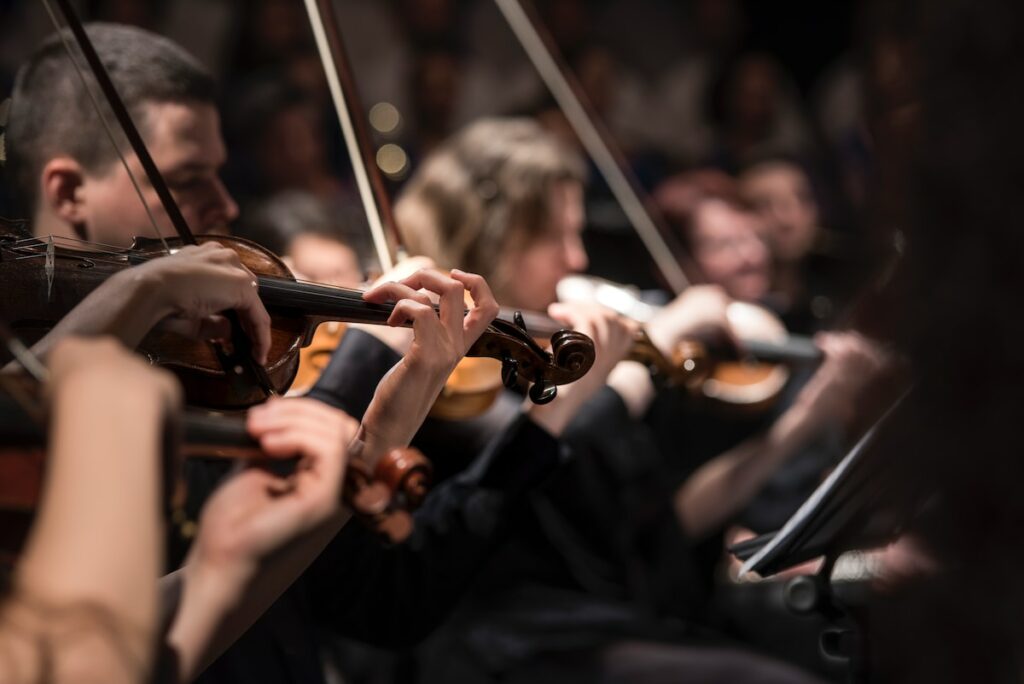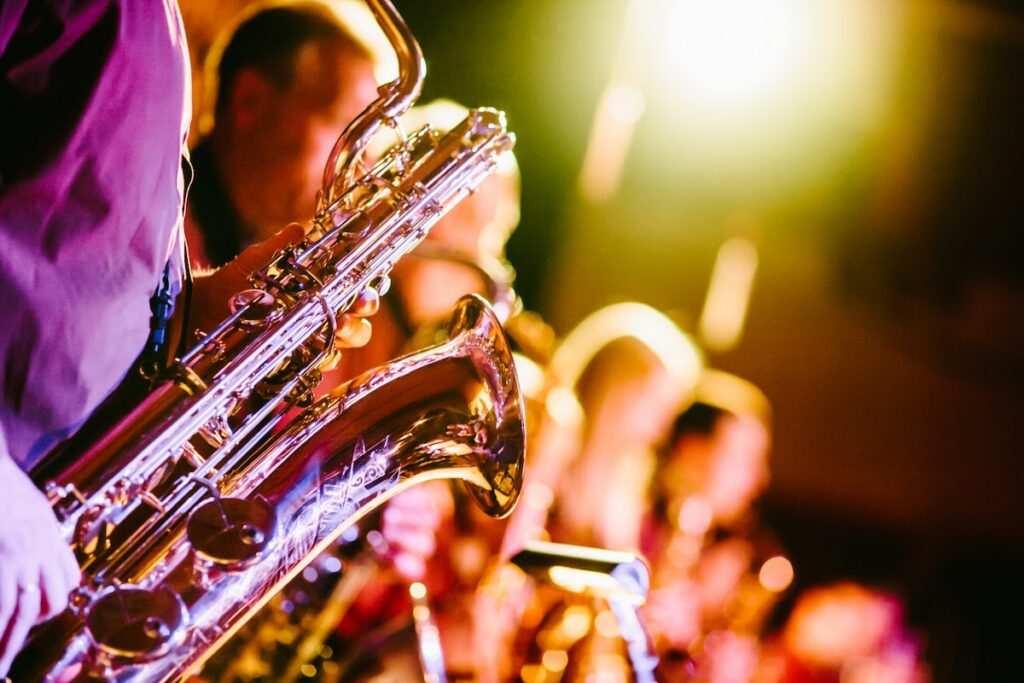The Healing Power of Music: Women Musicians and Therapists Making a Difference
Uncover the remarkable healing power of music through the inspiring stories of female musicians and therapists. A symphony of strength, resilience, and harmony awaits!

You’ve felt it before, the way music can heal. But did you know there’s a whole field dedicated to this? Women are leading the charge in using music as therapy. They’re not just playing tunes, they’re changing lives. In this article, we’ll explore their groundbreaking work, from historical pioneers to modern innovators. You’ll learn about their techniques and see their impact, as we delve into the incredible power of music therapy.

Key Takeaways
– Music has a rich history as a therapeutic tool, with different genres having different therapeutic effects.
– Women have played a key role in the advancement of music therapy, making significant contributions in research, practice, and advocacy.
– Women musicians promote healing through their music, tapping into the power of music across various genres and personal experiences.
– Music therapy has a wide range of benefits, including reducing symptoms of anxiety and depression, improving overall well-being, and aiding in rehabilitation and paediatric care.
The Therapeutic Influence of Music: A Historical Overview
You’ll find music’s therapeutic influence has a rich and varied history that’s as fascinating as it is impactful. Music’s cultural impact has always been significant, shaping societies and influencing individuals in profound ways. From ancient civilizations using rhythmic chants for healing rituals to modern therapists using music genres therapeutically, the power of music to heal is well documented.
The therapeutic music genres vary as much as the cultures they come from. From the calming strains of classical compositions to the uplifting beats of African drumming, the potential for therapy is vast. Scientific research backs this up, showing how different frequencies and rhythms can affect brainwave activity, promoting relaxation, pain relief, and even improved cognitive function.
But it’s not just about the science. There’s a deep, empathetic element to the therapeutic use of music. Imagine a world without music – it’s hard, isn’t it? Music touches us on an emotional level, providing comfort, expressing feelings when words fail, and connecting us with others. So, it’s no surprise that its use in therapy has such a long, diverse history and continues to evolve today.
Exploring the Connection Between Music and Healing
Undoubtedly, you’re about to delve into the fascinating connection between music and healing, a relationship that’s as powerful as it’s transformative. Music’s neurologic effects are prominent. When you listen to a melody, it’s not just an auditory experience—it’s a neurological one. Your brain responds to music’s rhythm, tone, and lyrics, triggering a cascade of chemical reactions. It can help reduce stress, alleviate pain, and even improve cognitive function.
Music’s healing power isn’t limited to its neurologic effects, though. The cultural impact of music is equally potent. Think about how a lullaby can soothe a crying baby, or how a patriotic song can unite a nation. Music is a universal language that transcends cultural boundaries and taps into our shared human experience. It can bring solace in times of sorrow, it can uplift spirits, and it can foster a sense of community.
Women in Music Therapy: Pioneers and Innovators
In the realm of music therapy, you’ll find that throughout history, women have been both pioneers and innovators, pushing boundaries and shaping the field as we know it today. Women’s representation in music therapy has been significant, with many leading the way in research, practice and advocacy.
Feminism has played a key role in this evolution. It’s given women the freedom to explore and express their unique perspectives and contributions, which have been pivotal in the advancement of music therapy. From the early pioneers who recognized the therapeutic power of music, to contemporary professionals integrating cutting-edge scientific knowledge into their practice, women in music therapy have continually redefined what’s possible.
Their work is not only innovative but also deeply empathetic, rooted in an understanding of the unique needs and experiences of those they serve. They’ve proven that music can be a powerful tool for healing, self-expression, and connection, creating new opportunities for individuals struggling with physical, emotional, and psychological challenges.
How Women Musicians Promote Healing
Let’s now turn to specific case studies that show how women musicians have tapped into the healing power of music. From various music genres healing diverse ailments to personal musicians’ healing stories, the impact is profound.
Consider the work of Sarah, a jazz musician who uses her art to help people manage their mental health. Through improvisation, she encourages emotional expression, aiding in the release of pent-up feelings. Her story exemplifies how music genres healing potential is not bound by one style.
Then there’s Maria, a classical pianist who has worked in hospice care. She’s seen firsthand how her delicate melodies can calm anxiety and provide solace to those at the end of their lives. Her story is a testament to music’s ability to comfort when words fail.
Music therapy isn’t just for patients, as shown by Poppy, a rock musician battling addiction. She found solace in her music, using it as a therapeutic tool in her recovery journey. Her healing story is a powerful illustration of music’s potential to offer a lifeline in times of personal struggle.
From the stories we shared with our readers, it’s clear how music’s healing power is a significant tool that women musicians are harnessing with great effect. Their contributions are making a tangible difference to individuals and communities.
Music Therapy Techniques Used by Women Therapists
You’ll find that many women therapists employ a range of music therapy techniques, and each one has the potential to foster healing in unique ways. These professionals use music to connect with clients on a deeply emotional level, stimulating brain regions associated with memory, mood and emotional regulation. Therapeutic instrument selection becomes a crucial task, as each instrument can evoke a different emotional response, and therefore, can be used to address different therapeutic goals.
Unfortunately, gender bias in therapy can sometimes affect the way these techniques are perceived and applied. While some may view women therapists as inherently nurturing and thus more suited to this form of therapy, it’s crucial to debunk such stereotypes. Women therapists don’t simply rely on their perceived empathy. They leverage their scientific knowledge of music’s psychological impact, tailoring their approach based on each client’s unique needs.
They might employ drumming to help a client release pent-up anger, or use soothing piano melodies to foster relaxation in a stressed individual. By understanding the tools at their disposal and applying them with precision, women music therapists can create a healing environment that caters to the emotional needs of their clients, despite any bias they may face.
The Future of Music Therapy: Female Leaders on the Horizon
As you gaze into the future of music therapy, it’s impossible to ignore the rising tide of female leaders shaping this transformative field. These women are not just breaking gender barriers in therapy, but also paving the way for more inclusive, empathetic, and effective therapeutic practices.
Historically, the field of therapy has been dominated by men, but women are changing this narrative. They’re introducing new techniques backed by scientific research, proving that music therapy can be a powerful tool for healing. More importantly, they’re fostering a therapeutic environment that values emotional connection and empathy, qualities often associated with femininity.
However, despite these strides, challenges remain. Gender barriers in therapy still exist, with prejudices and stereotypes often hampering women’s progress. Moreover, there’s an urgent need for progressive music therapy legislation, one that acknowledges and supports the unique contributions of female therapists.
Yet, these women are undeterred, bravely forging ahead, advocating for change and making a real difference. As a result, the future of music therapy looks not just promising, but also more diverse, inclusive, and empathetic. It’s a future where healing is not just a process, but a journey, guided by the transformative power of music and the pioneering spirit of women.
You’ve seen how women in music therapy have been innovators, pioneers, and healers, using the power of music to promote healing and well-being. Through their techniques and case studies, they’ve shown the profound impact music can have. As we look to the future, we see more female leaders emerging in this field, ready to continue exploring and expanding this powerful therapeutic tool. It’s clear: music isn’t just for the ear, it’s for healing your soul, too.
Do you want to share your story and inspire our readers ? Know that every story is paving the way for a brighter, happier future.





